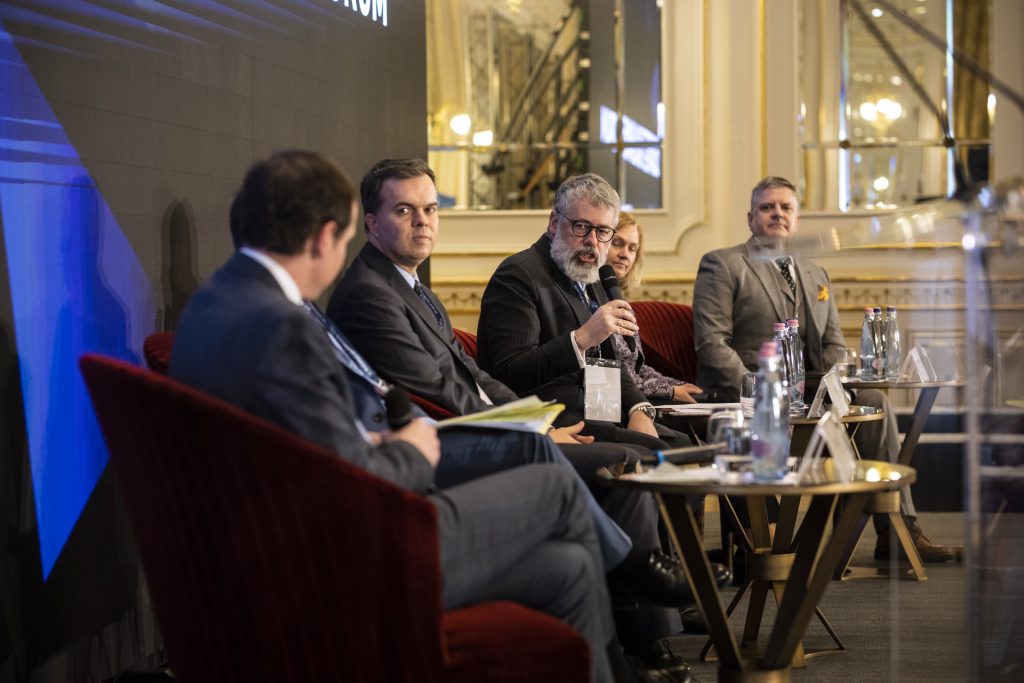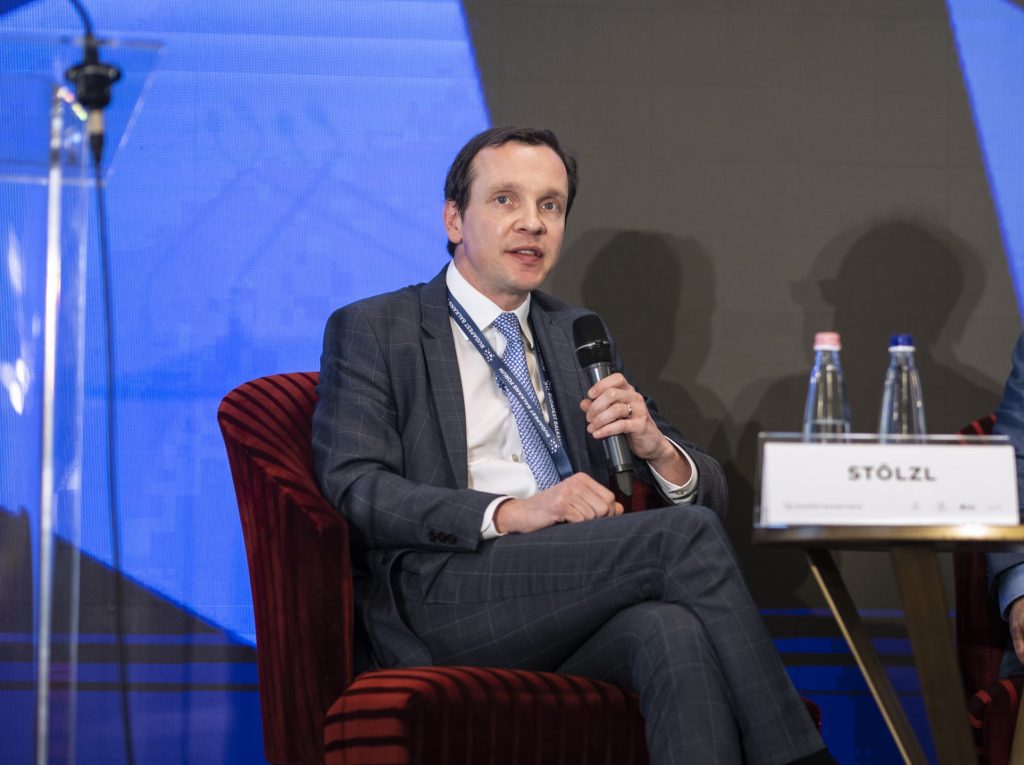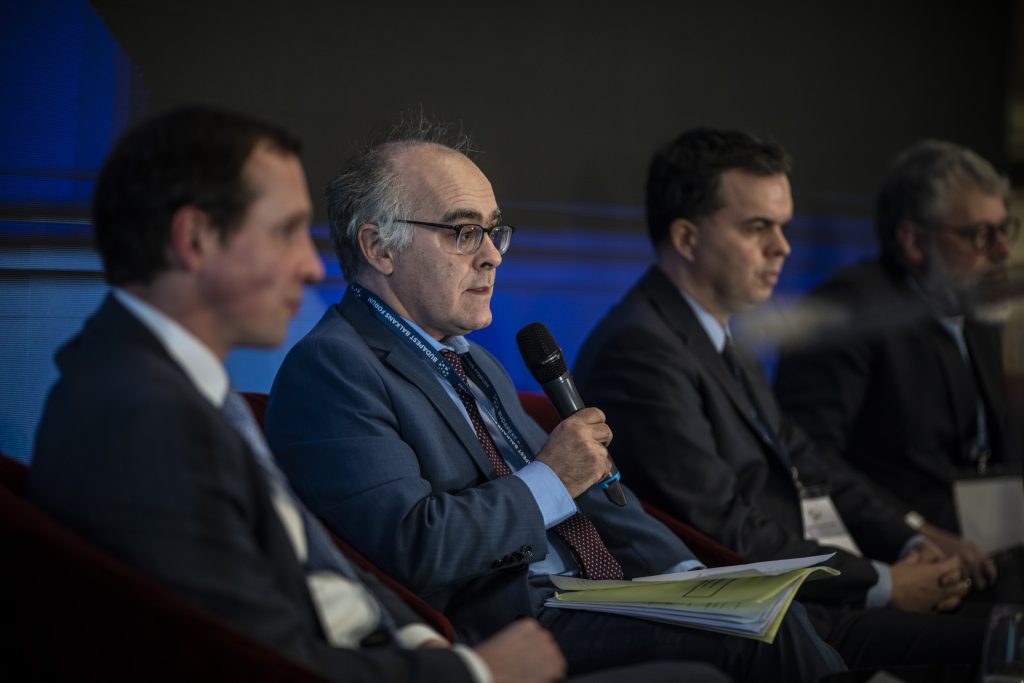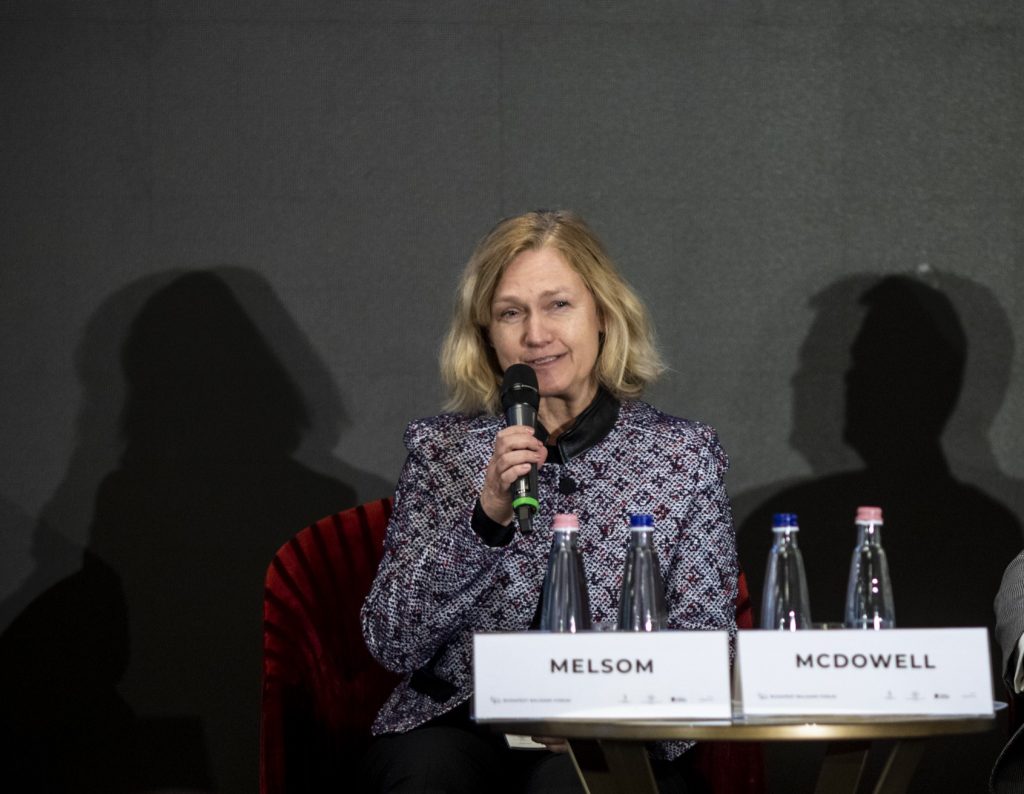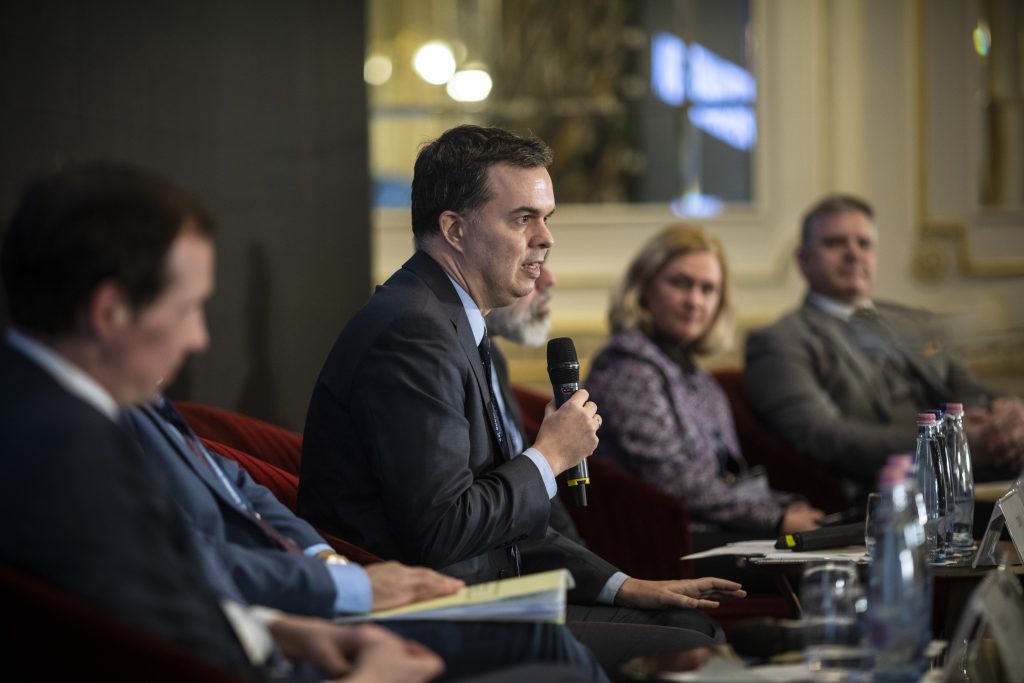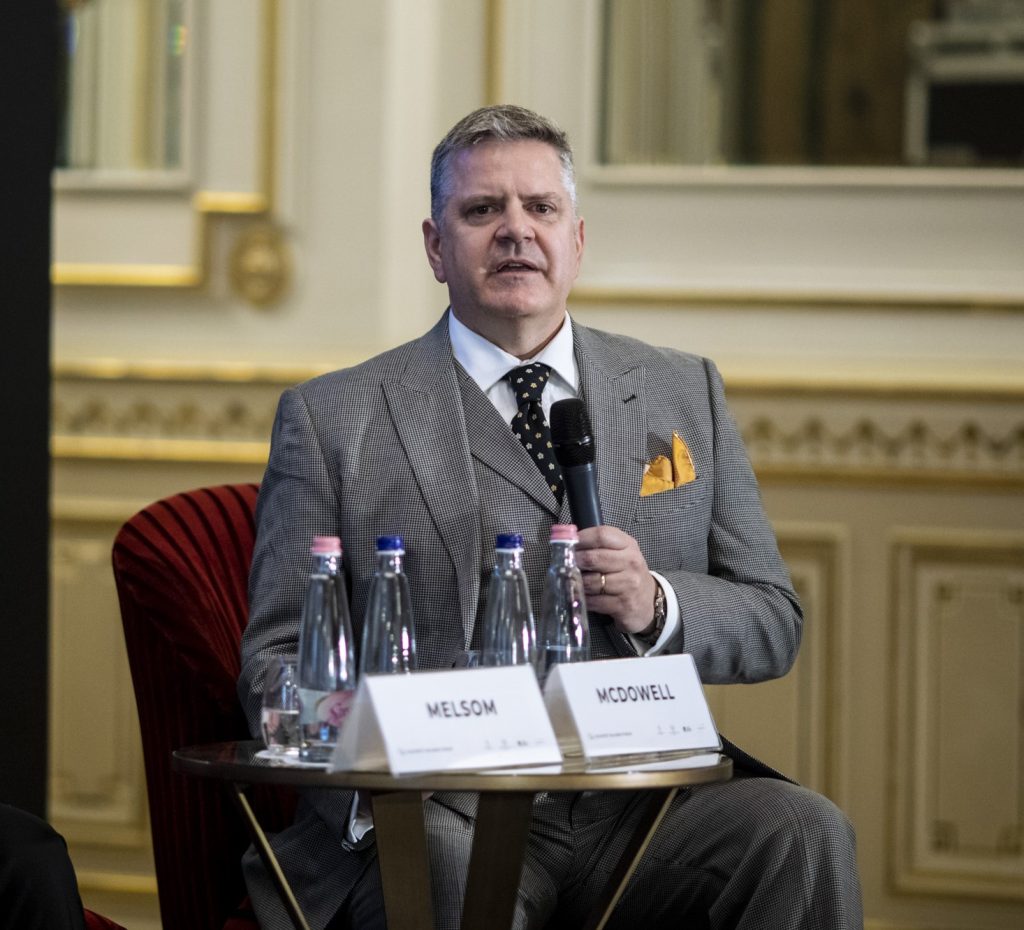After the keynote speech of Lord Stuart Peach, the panel discussion entitled ‘Formulating ideas on the Western Balkans. Perspectives from both sides of the Atlantic’ took place with the participation of public officials and experts who oversee the Western Balkans in their respective countries. The discussion was moderated by András Király, Head of the Strategic Planning and Analysis Office at the Sándor Palace.
Thomas Stölzl, Head of Unit for Southeast Europe at Federal Ministry for European and International Affairs of Austria emphasized how important and essential the enlargement process of the EU is. He argued that 2022 was a good year for the Western Balkans because of the decisions about granting candidate status for Bosnia and Herzegovina and visa liberalisation for Kosovo. At the same time, Mr. Stölzl added that his year will show how strong this momentum is. In June 2023, there will be the 20th anniversary of the Thessaloniki Summit. Mr. Stölzl believed that sectoral integration before reaching full membership would be beneficial for the countries of the region, just like regional cooperation. He also welcomed that the US actively support the region’s EU path. However, he emphasised that results would come only through real engagement from the region. It is also hard to set a deadline for those reforms as it might lead to further frustrations if the reforms do not work in time. Resolution of bilateral disputes would be beneficial for both sides – and for the citizens as well – and this should be understood in the countries of the region. He considered the development of the infrastructure as a number one priority. Finally, he noted that Austria needs to contribute to a more precise and structured strategy of EU enlargement to make it successful.
After being engaged in peacekeeping missions in the Western Balkans, “France lost sight on the region for a while, but it returned in 2019”, said Nicolas Faye, Head of Western Balkans Division in the Direction for Continental Europe at the Ministry for Europe and Foreign Affairs of France, referring to the French proposal on revised enlargement methodology. The new Western Balkans strategy became one of the three foreign policy priorities of France, and more attention is paid to the security situation in the region as well. Since its veto in 2019, the French position softened regarding the EU integration process and Paris gave positive marks in Sarajevo last week as well. France has increased development assistance towards the region, which focuses mainly on energy and development diversification. According to France, as a result of the Russian aggression in Ukraine, focusing more on security is essential and more strategic views about the EU enlargement and the integration of Western Balkans became necessary. Mr. Faye noted that the stabilization of the region is essential, which is a key step towards the EU. “Take advantage from the situation”, Mr. Faye emphasised several times during the panel as a key message to the Western Balkans. Concerning defining a deadline, he expressed his doubts whether it would really help or would just cause further frustration if it is not met.
Reacting to the ministerial panel on the first day, Martin McDowell, Director for the Office of Central and Southern European Affairs at the United States Department of State pointed out that “From the US perspective, the EU has never been stronger than it is now.” He also expressed his doubts about Russian willingness to reach peace in Ukraine. In his view, Russia is not interested in peace, otherwise it would have considered consider the proposal of Ukraine. He added that it also matters what kind of peace could be achieved as Europe’s security depends on the Russian war in Ukraine. That is why it is important how the security situation will develop in the Western Balkans and how the countries of the region would contribute to European security. Therefore, Mr. McDowell encouraged the governments also try to find way to use this opportunity and welcomed that Albania and North Macedonia made already some progress. He also expressed strong support for the High Representative in Bosnia and Herzegovina, Christian Schmidt in pushing for reforms and condemned the countering actions of the Republika Srpska and Milorad Dodik.
Kristin Melsom, Director of the Section for South Eastern Europe of the Ministry of Foreign Affairs of the Kingdom of Norway emphasised the importance of security and stability. “We should think all of us”, she noted and underlined that Norway never left the Western Balkans, it has always been there. Regarding the Euro-Atlantic aspirations, she believed that the support provided to the Western Balkan countries is a key. The EU path is the key for cooperation, and it is equally important to acknowledge the contributions such as projects and fundings. The special representatives and envoys work well together and can give also support. “Be more strategic”, called upon Ms. Melsom and advised parties to work on normalisation of relations within the Western Balkans so the countries of the region can focus on the future instead of the past. Cooperation of the Nordic countries could also provide many lessons learned for the Western Balkans. She added that Norway also needs to find a way to support these countries more, especially in the context of the multiple challenges arising from the war in Ukraine, the energy and economic crises that impact these countries, so Norway needs to provide a stronger security and cyber security support as well.
“From the Hungarian foreign policy point of view, the Western Balkans is the number one priority”,reaffirmed the message of Minister Szijjártó László Dux, Head of the Western Balkans Department at the Ministry of Foreign Affairs and Trade of Hungary. The EU enlargement towards the Western Balkans is a key priority as it is essential from strategic and security perspective, and thus, technical help to the region is essential. Mr. Dux also drew attention to other challenges the region faces such as the huge demographic loss because of massive emigration, illegal migration, and fighting environmental problems (like water and air pollution). He believed that such challenges should be also discussed within the framework of EU meetings.
